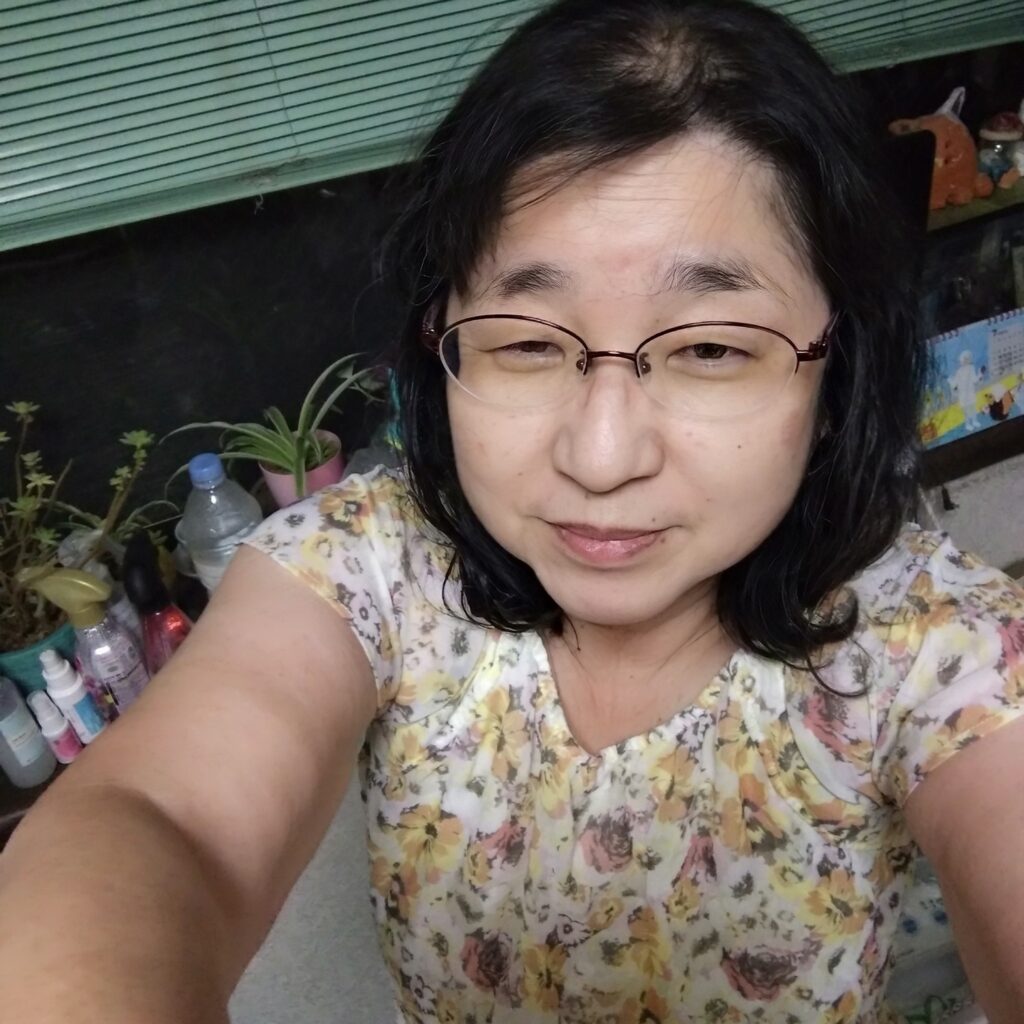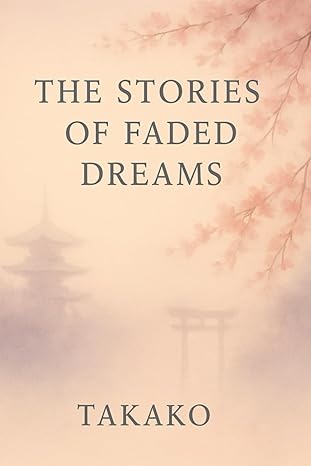Newsletters
Q&A With Takako Itoh
New Information about Upcoming Book Related News

Q&A Takako Itoh
After reading this beautiful poetry collection The Stories of Faded Dreams, I am thrilled to do this Q&A with the author Takako Itoh. She was kind enough to send me a copy all the way from Japan and to agree to this interview!
Q: Takako, welcome to Book Notions! I’m very happy to have you here! Would you tell the readers a bit about your poetry collection The Stories of Faded Dreams? Where does the inspiration for your poetry come from?
A: Thanks, I appreciate you giving me the chance to talk about my debut book. This book was made possible with the cooperation of Miss. Julie Miles, a poet I respect and friend of mine. As I’m Japanese, I write haiku and tanka in addition to poetry. I haven’t had a long career as a poet and personally thought it was too early for me to publish a book, but she knew that it was my dream to one day publish a book of poetry. She gently pushed me forward and helped me. This book is my hope of letting people around the world learn about Japan and haiku. I would like poetry to make it less formal and inaccessible, rather more accessible to everyone in their daily lives.
In addition to poems, tanka, and haiku, the book also includes short stories. I’m sure you’ll enjoy them as well.
As for the inspiration for poetry, it always comes from other phenomena. For example, something that expands my creativity, such as people-watching, nature, music, photography, or painting, will suddenly start to paint an image in my head, like a few seconds of video. First, I put it into words, and then I overlay that image with my own words again… My poems are born by repeating this process. I try to use as few words as possible so that as many readers as possible can relate to my work with their own sensibilities. I value the double and triple meanings that arise from this process.
Q: You write poetry quite often that I’m surprised you don’t have several books of poetry. How were you able to choose which poems made the poetry book The Stories of Faded Dreams?
A: For me, writing poetry is the same as keeping a diary. I love finding small joys every day. For example, finding a beautiful flower, a clear blue sky, or the soothing sound of rain—being able to feel happiness in every one of these things is not something to be taken for granted. After all, there are people in this world who live in fear of war and conflict every day, their lives threatened.
And perhaps my passion for poetry, rather than my career as a poet or academic qualifications, is what keeps me going. I simply love the way words act like a paintbrush, and not just poetry, but the way they paint something every day, even if I’ve always thought it was quite a bold undertaking for an unknown poet to publish a book. The poems in this book are like an assortment of sweets. They were selected based on the themes of everyday joy, anger, sorrow, and happiness, as well as the beauty of nature.
I also put a lot of thought into the title. There are bright and dark parts in our hearts. I chose this title with my wish that there is hope of light beyond the dreamlike scenery that we can only see vaguely.
Q: What do you hope readers takeaway after reading each of your poems? What emotions do you hope they feel?
A: I would like people to be free to feel what they think when they read my poems. There are no set theories, and I want them to feel what they feel. I make my poems as short as possible. This is to leave a lingering impression so that they can interpret them in their own way. It helps readers to understand my work more easily as their own words, rather than as my own.
And even if today has been a sad and difficult day for them, if even one of my poems can bring light to their heart, I will feel very happy as a human being, before I am a poet.
Q: Recently we were discussing your book that you wrote The King and the Old Woman! I do look forward to reading it once it is published. Would you like to give a brief description of The King and the Old Woman?
A: Publishing a book is not easy for me, as I am not from a financially wealthy background. Even so, I have never stopped donating to those less fortunate, because I know that spiritual richness is what drives me to write poetry.
Now, having been blessed with the opportunity to publish my first debut book, I’ve been getting real about this story I’ve wanted to publish for years. The story, “The King and the Old Woman” is a tale of bonds spanning three generations and the theme of reincarnation. It is by no means a romantic tale,but rather a story of people who accept their sometimes-cruel fate and live strong lives.
The story contains a main story, a sequel, and epical poems in an omnibus format. To help this story be published, I first hope that many readers and publishing companies will become aware of this debut book. And when the time is ripe for me as a poet, please read this story. I believe this book will help you realize that we are not strangers, that we exist in a single universe, beyond each race, no borders.
Q: Who are your favorite authors both Japanese & Non-Japanese?
A: My favorite authors are followings:
Haiku poet, Ms. Machi Tawara, Japan
Book: “Salad Anniversary” (Salad Kinen-bi)
Tanka poet, Mr. Shinichiro Hagiwara, Japan
Book: “Runway” (Katsuso ro)
Poet, Mr. Kenji Miyazawa, Japan
His famous poem: “I won’t be beaten by the rain” (Ame ni mo makezu)
Author: Mr. Nick Cassavetes, U.S.A.
Book: “The Notebook”
Author: Mr. Edgar Allan Poe, U.S.A.
Book: “The Black Cat”

